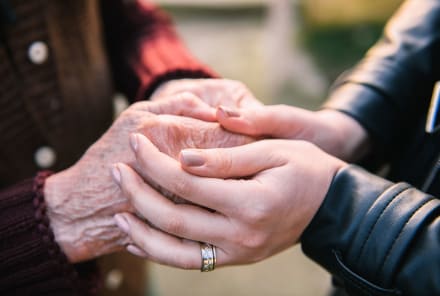Advertisement
A Common Mistake We Make While Looking For Love, From A Relationship Counselor

What makes us experience love?
That was the heart of the concern a woman named Brandy came to me with. She couldn't feel the feeling of love, other than what she occasionally got from her husband or others.
"I can't seem to feel my love for my husband. I want to have kids, but I'm worried that I won't feel love for them, either. I get that warm feeling in my heart only when someone else is loving to me, but I don't feel it on my own, even for my husband. I know I love him, but I can't feel it. What's wrong with me?"
Many people have variations of this same issue: They're seeking out the warm feeling we refer to as love, which they mainly associate with being head-over-heels infatuated with a partner and receiving similar affection from them. But this isn't what love looks like or feels like—in fact, it can be a barrier to experiencing the real love we crave.
Misunderstanding love.
At the heart of Brandy's problem was a misunderstanding about where love comes from.
As I worked with Brandy, it became apparent that she had learned many ways of trying to have control over getting love from her parents and from others, and she was now doing the same things with her husband—giving herself up, getting angry, and withdrawing to punish him when he didn't do what she wanted him to do. Brandy had learned to abandon responsibility for her own feelings and to make others responsible for her feelings of safety and worth.
Brandy was constantly trying to get love from others and not ever able to share love. Those two problems are interconnected.
When your intention is to have control over getting love from someone, your heart is closed to truly receiving the gift of love. Without it, we have no love to share.
We don't create love—we open to it.
As Persian poet Hafiz once wrote: "We are not Love. We are the holes in the flute thru which God's Love flows."
Putting aside the religious references, there's great wisdom in this way of viewing love. Love will not manifest from nothing. Instead, it's something we can open ourselves to or be closed to.
Sharing love is the most wonderful experience in life, but you don't have love to share when your intention is to control others to get love from them. The only way you won't be trying to control getting others' love is when you learn to love yourself—to give yourself the attention, caring, and respect you might be trying to get from others and to engage in the loving actions that support your highest good.
Contrary to the idea that loving yourself is selfish, loving yourself is self-responsible. Loving yourself opens your heart to receive love—the kind of love that comes when you're connected with your own internal source of love—which then enables you to share love rather than always trying to get love.
Learning to open yourself to love.
Your heart opens and closes automatically in reaction to your intention. When you consciously choose to learn how to love yourself, your heart automatically opens to the love coming from your internal source—and you can then share your love with others.
As Brandy learned to shift her intention from controlling others to learning to love herself, she was shocked to experience the warm feeling of love in her heart for her husband and for others.
It took practice for her to be conscious of her intention because controlling was habitual for her. By learning to stay present in her body with her feelings, she became aware that when she was abandoning herself (by judging herself, ignoring her feelings, and then trying to get love from others), she felt anxious, alone, and empty inside. But when she was loving herself, she felt happy, safe, and full of love—love that she could now share with her husband and other loved ones.
Watch Next
Enjoy some of our favorite clips from classes
Enjoy some of our favorite clips from classes
What Is Meditation?
Mindfulness/Spirituality | Light Watkins
Box Breathing
Mindfulness/Spirituality | Gwen Dittmar
What Breathwork Can Address
Mindfulness/Spirituality | Gwen Dittmar
The 8 Limbs of Yoga - What is Asana?
Yoga | Caley Alyssa
Two Standing Postures to Open Up Tight Hips
Yoga | Caley Alyssa
How Plants Can Optimize Athletic Performance
Nutrition | Rich Roll
What to Eat Before a Workout
Nutrition | Rich Roll
How Ayurveda Helps Us Navigate Modern Life
Nutrition | Sahara Rose
Messages About Love & Relationships
Love & Relationships | Esther Perel
Love Languages
Love & Relationships | Esther Perel











